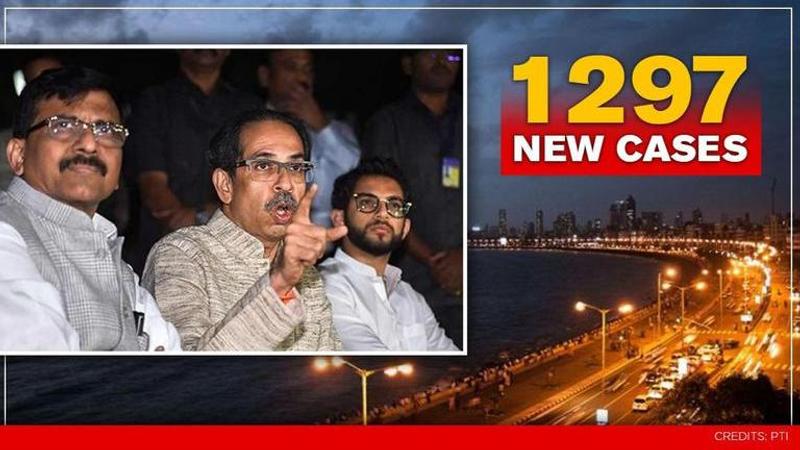Published 23:08 IST, June 26th 2020
Mumbai sees 1297 new COVID-19 cases; BMC to conduct serosurvey of 10,000 samples
While Maharashtra's Coronavirus (COVID-19) daily tally has been averaging 5000 cases recently, its financial capital reported 1297 cases and 44 deaths on Friday

While Maharashtra's Coronavirus (COVID-19) daily tally has been averaging 5000 cases recently, its financial capital reported 1297 cases on Friday, with 44 new deaths. Mumbai also saw 593 recoveries taking its tally to 39,744 cases. The city's COVID-19 tally, which is the second-highest in India, stands at 72,287 cases and 4177 fatalities.
Mumbai: 1297 COVID cases
BMC also reported that it will undertake large-scale sero surveillance in three wards M-west, F-North and R-North in partnership with NITI-Aayog, Tata Institute of Fundamental Research (TIFR) and other institutions. While an ICMR-headed serosurvey of 500 samples has already been completed in Mumbai, this serosurvey will test 10,000 random samples in non-slum areas. This sero survey which will be used to ascertain the level of infection of the virus, another special survey will be conducted for Health care officials in the same wards.
Tope: Cases to rise in July-August
Earlier in the day, Maharashtra Health Minister Rajesh Tope revealed that the COVID-19 cases in the state are expected to rise during July and August. He mentioned that the state government was working to ensure that the fatality rate does not go up and is increasing the number of ICU beds and doctors. Addressing the opposition's allegation, the Maharashtra Health Minister stressed that the state government was not hiding the number of COVID-19 cases, and deaths. According to him, some deaths of past days were reported on a later date due to reconciliation.
BMC’s Mission Universal testing
Boosted by its Dharavi success, BMC has announced that it will procure 1 lakh antigen testing kits. Moreover, BMC has also urged private hospitals and offices to procure antigen test kits to test employees as the city reopens. The civic body has also allowed home tests with e-prescriptions and has changed its discharge policy aiming to free up its beds. As per the new discharge policy, instead of discharge mild/asymptomatic patients displaying no fever without tests, BMC will no test these cases on the fourth day and discharge if they test negative.
Mumbai's COVID crisis
The BMC has increased its containment zones to 756, while over 6005 buildings and chawls have been sealed and being self-managed by the society. While slums were initially where most cases were found, BMC claims that most cases were now found in housing societies. Recent BMC report shows Borivali as the most affected place with the doubling rate at 20 days, while Dharavi is the least affected ward with doubling rate at 97 days. Overall, Mumbai's doubling rate at 41 days is higher than the national average of 17.4 days
Updated 23:08 IST, June 26th 2020





